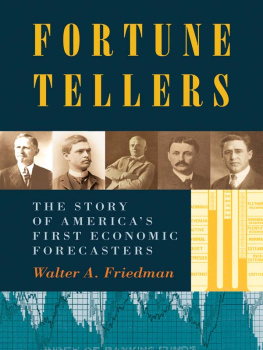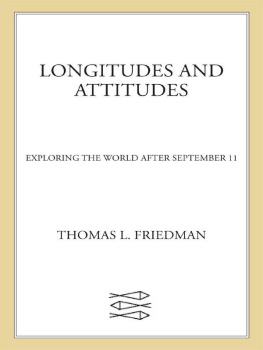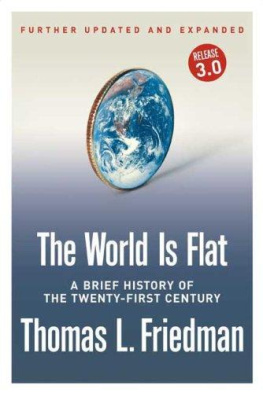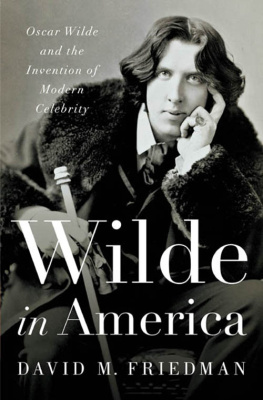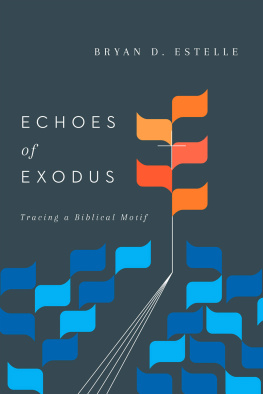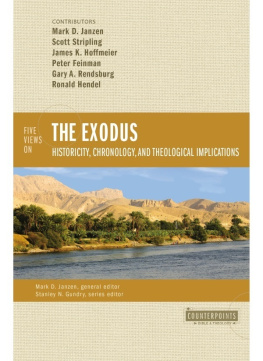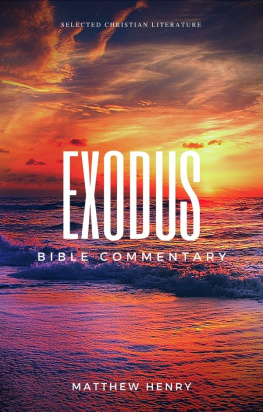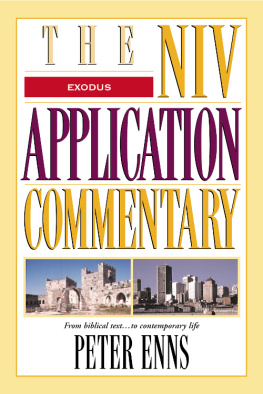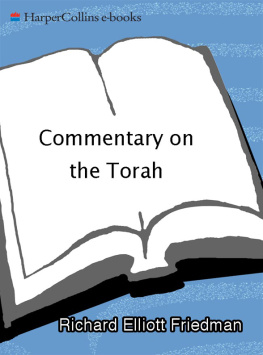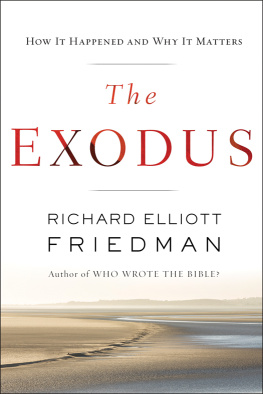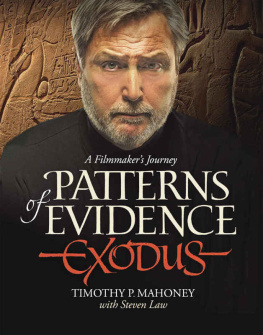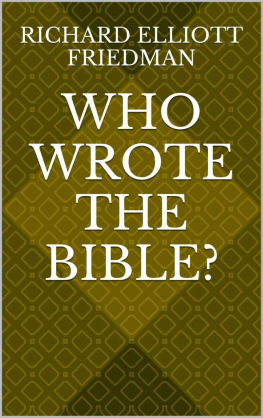For my wife, Janet, with love
In past books I expressed my good fortune to have had teachers and friends who were among the greats. I was touched and taught by more wise and learned souls than a person has a right to have in a lifetime. Now their entire generation has passed, and the first part of my acknowledgments has become an In Memoriam. They are:
Ernst Pinhas Blumenthal, wise educator
Frank Moore Cross, biblical scholar
Mary Douglas, anthropologist
John Emerton, biblical scholar
Louis Finkelstein, scholar and Chancellor of the Jewish Theological Seminary
David Noel Freedman, biblical scholar
Sir Martin Gilbert, historian
Nahum Glatzer, philosopher
Moshe Goshen-Gottstein, philologian
Moshe Greenberg, biblical scholar
Menahem Haran, biblical scholar
Thorkild Jacobsen, Assyriologist
Mordecai Kaplan, scholar of Judaism
Jerome and Miriam Katzin, who endowed my chair at the University of California and taught me much about life along the way
Walter Kohn, physicist, Nobel Laureate
Abraham Malamat, historian
Arnaldo Momigliano, historian
William Moran, Assyriologist
Yochanan Muffs, biblical scholar
Frank Nelson, debate teacher and coach
Jacob Neusner, scholar of Judaism
Yigal Shiloh, archaeologist
Melford Spiro, anthropologist
Hayim Tadmor, historian
Shemaryahu Talmon, biblical scholar
Geza Vermes, historian of religion
Moshe Weinfeld, biblical scholar
G. Ernest Wright, archaeologist and biblical scholar
All are gone now, as is my wife Randy Linda Sturman, lawyer, anthropologist, teacher, my basherte, whose influence was the deepest and most pervasive of all.

The second half of my acknowledgments is to the living. What a strange feeling it is that I share with some of my colleagues, that we are the old guys now. I wish them: to 120. And I am grateful to:
Ike Williams, of Kneerim and Williams, my new literary agent whose skills amaze me.
Mickey Maudlin, my superb editor at HarperOne, and the smart, professional team at HarperOne.
The University of Georgia, my students, and my welcoming colleagues in the Department of Religion, who gave me a new home and a new energy for teaching and research for ten years after my retiring from the University of California.
Ann and Jay Davis, who endowed my professorship at the University of Georgia.
Baruch Halpern, still the unsurpassed historian in our field.
Ronald Hendel, who read and commented on the entire manuscript.
Thomas Lambdin, a teacher from my days as a graduate student whose generosity, wisdom, and wit stay with me.
Paul Wolpe, who amiably and collegially set me on the trail of the genetic evidence concerning the Levites.
Alice Hoffman, on whose novel the Dovekeepers I had the pleasure of consulting.
John Buffalo Mailer, my professional partner and invigorating friend in television and books.
My blessed children Jesse and Alexa, and Jesses loving husband Nick.
My partner in life, my wife Janet. We came together after we each had a terrible loss of a beloved spouse, and she has brought me comfort, partnership, love, and a tremendous new community of family and friends.
I had the opportunity to test and refine these ideas in lectures at Harvard University, the University of North Carolina at Chapel Hill, the University of California, San Diego, Wright State University, Southern Methodist University, Mercer University, the University of Haifa, the University of Georgia, at Limmud conferences at the University of Warwick, England, and at Ramah Darom in Georgia, at the Biblical Archaeology Society, at the Society of Biblical Literature, and at the Rabbinical Assembly at their annual convention. I am grateful to these institutions for their kind hospitality.
Historys a thing not easily captured
And once deceased not easily exhumed.
R. E. Friedmans misquotation of Dan Fogelberg
Three questions: Is the exodus from Egypt a storyor history? How did monotheism, the idea of there being only one God, come about? What person or events gave us the idea that we should love others as ourselves? Three mysteries. Or one.
It is 1956, I am ten years old, and I am standing in line to see the opening of the movie The Ten Commandments. My passion with the exodus must have kicked in even before that day because I already knew the story by the time I saw the film, and that passion has not ended. As for the film, it was a wonder to the ten-year-old. I was short and had big eyes and was overwhelmed like everyone else looking up at the scene of the Red Sea splitting. About forty years later (a biblical number), when I had become a biblical scholar, I was a consultant on another movie about the exodus, The Prince of Egypt. Jeffrey Katzenberg at Dreamworks graciously allowed me to bring my daughter to one of the sessions at the studio. She was about the age that I had been when I had seen The Ten Commandments, so I met the story again through a childs eyes.
There has been a surge of interest in the exodus lately: live movies, animated movies, books, cover stories in magazines, archaeological surveys and excavations, conferences, lectures, sermons, debates, documentaries, online videos. And the quantity of interest means a quantity of different treatments at a quantity of different levels. You can find everything from nutty theories to serious, respectable scholarship. People blow small items out of proportion. People focus on items of evidence without taking into account other evidence that challenges or outweighs those points. People deny that it happened. People insist that it happened. People say that it happened but not the way the Bible tells it.
The exodus is the story of the birth of a nationand the birth of some cornerstone ideas. Practically everything that follows it in the Bible flows from it: the greatest concentration of miracles in the Bible, the first statement of the Ten Commandments (I am the Lord your God who brought you out of the land of Egypt), the introduction of Moses as well as Aaron and Miriam, the early great prophets, and the first priests. William Propp, possibly the preeminent scholar of the biblical book of Exodus, says it simply in his two-volume commentary: The story of Israels flight from Egypt is the most important in the Hebrew Bible. Scholars have written thousands of articles and books about it. Biblical scholars, Egyptologists, archaeologists, linguists, historians, literary scholars, geologists, anthropologists: people from practically every background have been drawn to it. Millions of people tell it and retell it and celebrate it and teach it to their children. And we do not even know if it really happened.
This is truly frustrating. Until very recently we had the same situation with the Bibles King David. David is, after all, the only figure in the Hebrew Bible who compares to Moses, both in the sheer amount of the texts about him and in the degree of development of his life and character. Some said that there was no such person, no such kingdom, no royal house of David. But then we found two references to kings of the House of David in ancient texts, Archaeology and skilled historical detective work have accomplished a great deal toward solving the David problem. But the exodus problem has remained.
The Bibles story of the exodus was always on the menu in my introductory courses on the Hebrew Bible, and I wrote in detail about that story in my Commentary on the Torah: the meaning, the artistry, the character of Moses, the connection with other parts of the Bible. But I had little to say as a scholar about the exodus itself, the real exodus, the historical event, whatever that was, behind the Bibles story. I knew that many of my colleagues in Bible studies and most of my colleagues in archaeology doubt, or even deny, that it happened. That never felt right to me.


